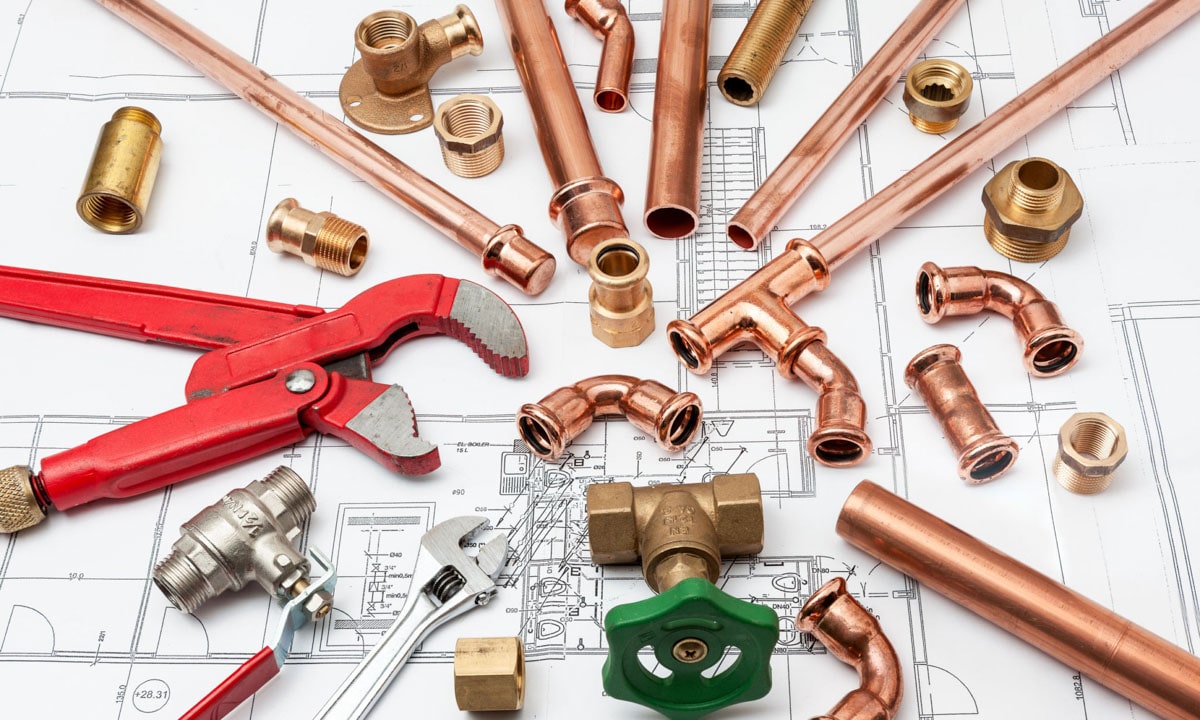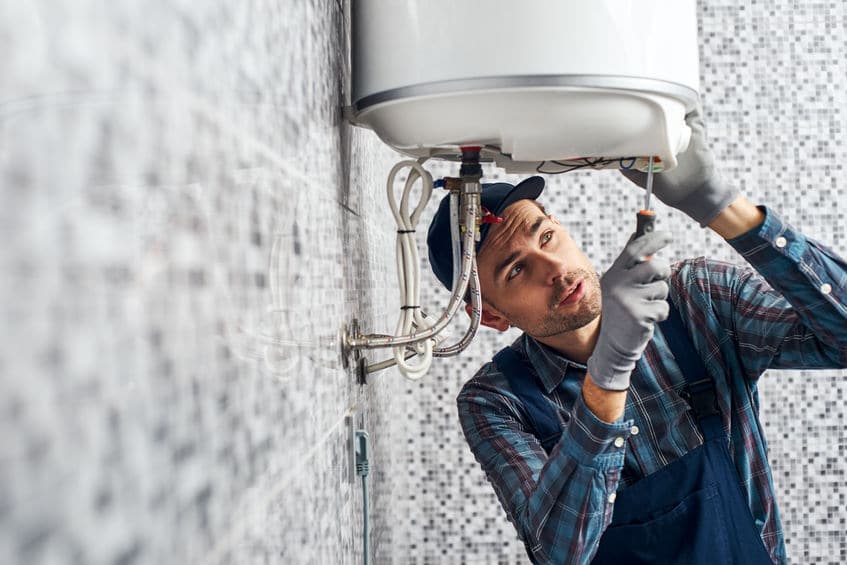A of Plumbing: Patterns and Advancements on the Horizon
A of Plumbing: Patterns and Advancements on the Horizon
Blog Article
Just how do you actually feel on the subject of The Future Of Plumbing: Trends And Technologies To Watch?

Intro
The pipes market is undergoing a transformative phase driven by technological advancements and growing worries for sustainability and performance. This short article explores emerging patterns and technologies forming the future of plumbing.
Smart Pipes Equipments
Integrating wise innovation right into plumbing systems enables remote monitoring, leakage detection, and automated upkeep. Smart sensors and IoT (Net of Things) tools enable home owners and plumbers to keep an eye on water usage and detect problems in real-time, resulting in much more efficient resource management and aggressive upkeep.
Water Efficiency Solutions
With boosting focus on water conservation, cutting-edge solutions are being created to reduce water wastage in pipes systems. High-efficiency components, greywater recycling systems, and wise irrigation controllers are amongst the modern technologies assisting consumers reduce their water impact while preserving convenience and convenience.
Sustainable Products
The shift in the direction of sustainability encompasses pipes materials, with a growing choice for environment-friendly alternatives. Biodegradable piping materials, such as PEX (cross-linked polyethylene) and HDPE (high-density polyethylene), offer durability and resistance to deterioration without compromising environmental stability.
Predictive Upkeep
Anticipating maintenance methods utilize information analytics and artificial intelligence formulas to prepare for and prevent plumbing issues before they take place. By assessing historical data and efficiency metrics, predictive maintenance formulas can recognize patterns and anomalies, making it possible for positive interventions to avoid pricey repairs and disruptions.
Enhanced Fact in Pipes
Increased Fact (AR) technology is transforming plumbing by offering service technicians with real-time visual advice for fixing and repair work tasks. AR-enabled wise glasses or mobile applications overlay electronic info onto the physical atmosphere, aiding plumbings picture pipe designs, recognize hidden leaks, and perform repair services with accuracy.
Impact of 3D Printing
The arrival of 3D printing has introduced new possibilities in producing pipes elements. From custom-made fixtures to complex pipeline installations, 3D printing enables fast prototyping and on-demand manufacturing, decreasing lead times and enabling greater modification in plumbing design.
Health and Safety Characteristics
In reaction to heightened concerns for health and wellness, plumbing components are integrating functions such as antimicrobial surfaces, touchless procedure, and self-cleaning devices. These innovations not only boost hygiene yet additionally promote customer comfort and comfort.
Hygiene-focused Fixtures
Touchless taps, self-sanitizing toilets, and antimicrobial surfaces are ending up being progressively common in household and commercial setups, decreasing the risk of bacterium transmission and promoting a cleaner, healthier environment.
Water Top Quality Tracking
Improvements in water top quality tracking innovations allow property owners to check the purity and security of their water supply in real-time. Smart water quality sensors can detect contaminants, pH degrees, and temperature level variants, empowering customers to take positive steps to ensure water safety.
Remote Pipes Solutions
Remote diagnostics and virtual support are transforming the means pipes services are delivered. Via video conferencing and remote accessibility modern technologies, plumbers can fix problems, give support for do it yourself repair work, and also perform remote examinations, offering better ease of access and comfort to home owners.
Obstacles and Opportunities
While pipes innovations hold tremendous promise, they likewise present difficulties such as data personal privacy problems, regulative compliance, and the need for workforce training. Dealing with these challenges calls for partnership in between market stakeholders and governing bodies to make certain risk-free and liable application of brand-new technologies.
Governing Landscape
Regulatory frameworks play an important duty fit the fostering of pipes innovations, with requirements and codes regulating whatever from water efficiency to product safety. As modern technologies remain to advance, governing bodies must adjust to make sure customer protection and environmental stewardship.
Future Outlook
The future of pipes is defined by continued innovation and integration with other sectors such as IoT, renewable resource, and building automation. By accepting sustainable methods, leveraging arising innovations, and focusing on user-centric layout, the plumbing market is positioned to attend to the evolving needs of society while decreasing its ecological footprint.
Final thought
To conclude, the future of pipes is defined by a merging of modern technology, sustainability, and user-centric style. By welcoming smart remedies, sustainable products, and proactive maintenance practices, the plumbing industry can improve performance, promote safety, and contribute to an extra lasting future.
Plumbing Industry Trends You Need To Know
Smart technology in plumbing
Homeowners want to be able to manage their homes from their phones. The technology exists to make that happen. From smart toilets to leak detector devices, the whole plumbing system can be managed on an interconnected network made up of sensors, IoT devices, and machine learning algorithms.
This allows for wireless control to turn appliances on and off, automate routines, and access advanced monitoring to track water usage and flag potential issues. Smart technology streamlines water consumption, maintenance and energy usage, creating a more efficient system.
Green plumbing
The data analysis possible with smart technology not only improves convenience and cost-effectiveness but also fulfills a high-priority customer desire – sustainability. Consumers are very aware of their impact on the planet and want plumbing solutions to reduce damage and support sustainability. Eco-friendly plumbing solutions are already starting to emerge.
Customers can opt for low-flow toilets, water-saving faucets, and connections to sustainable energy sources. Beyond monitoring water consumption, customers can conserve water through the installation of greywater systems. This is a system that collects water that has been used but is still clean enough for some household uses such as toilet flushing.
Shorter product pipeline
To keep up with modern plumbing, plumbers need modern tools that enable them to complete jobs more efficiently. One technology making strides in this area is 3D printing. By 3D printing key plumbing fixtures, plumbers can reduce wait times even for specialized fixtures. It minimizes delays often seen in traditional manufacturing that frustrate customers and prevent plumbers from taking on more work.
Off-site repairs
Augmented reality is making a splash in many industries including plumbing. Plumbers can map a building online so they can explore the plumbing system through augmented reality, identifying areas of maintenance and repair completely digitally. This technology can be applied quite widely in plumbers’ work including planning installations and training new recruits. It’s safer, smarter and more efficient.
Low-footprint materials
Another way for plumbing companies to reduce their environmental footprint and meet the customer demand for sustainability is by using recycled materials in their work. The products they source and manufacture such as pipes, fixtures and faucets can be made from recycled materials. This saves the planet while being just as effective.
Onsite water purification
Additionally, plumbing companies can be advocates of water conservation and ease the financial and environmental concerns of customers by offering water purification systems. New water purification technology such as reverse osmosis systems and UV systems make it possible for homeowners and business owners to thoroughly cleanse water, removing contaminants onsite. This means the water can be safely reused in more ways than greywater can be, establishing a water recycling loop.
Tankless water heaters
Another innovation of modern plumbing is tankless water heaters. The idea is that the water is heated on demand as it runs through the system instead of being heated in a water tank. This is more energy efficient and therefore cost-effective and eco-friendly because water isn’t heated needlessly.

Hopefully you enjoyed our topic on 7 Plumbing Industry Trends You Need To Know. Thanks so much for spending some time to read our posting. Those who enjoyed reading our blog post kindly be sure to pass it around. Many thanks for taking the time to read it.
Click Here Report this page